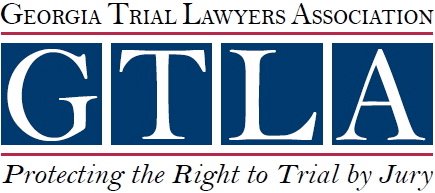When someone is involved in a personal injury incident in Georgia, one of the primary concerns is the financial impact of lost wages. Understanding how to navigate these claims is essential for ensuring fair compensation. Personal injury claims can be complex, and knowing the intricacies of lost wages and compensation helps injured parties seek the justice they deserve. This guide explores the key aspects of claiming lost wages and compensation in Georgia personal injury cases, offering a comprehensive overview of the process.




Defining Lost Wages in Personal Injury Claims
Lost wages refer to the income an individual misses out on due to injuries sustained in an accident. This can include salary, hourly wages, overtime, bonuses, and even potential income from lost opportunities. When an injury prevents someone from working, the financial strain can be significant, making the pursuit of compensation crucial. In Georgia, proving lost wages involves demonstrating the extent of the injury and its direct impact on the ability to work. This requires thorough documentation, including medical records, employment verification, and evidence of previous earnings.
Temporary and Permanent Lost Wages
Lost wages can be categorized into two types: temporary and permanent. Temporary lost wages refer to the income lost during the recovery period until the injured person can return to work. This period varies depending on the severity of the injury and the individual’s recovery process. On the other hand, permanent lost wages are associated with injuries that result in long-term or permanent disability, preventing the individual from returning to their previous job or any form of employment. Calculating permanent lost wages involves considering the person’s age, occupation, skills, and the likelihood of future earnings.
Medical Evidence and Its Role in Lost Wages Claims
Medical evidence is crucial in substantiating a claim for lost wages. Detailed medical records from doctors, therapists, and other healthcare providers are essential to demonstrate the extent of the injuries and the recommended recovery period. These records should include information about the diagnosis, treatment plan, and prognosis. Additionally, medical experts may be required to provide testimony or written statements explaining how the injuries impact the individual’s ability to work. This evidence forms the foundation for justifying the claim for lost wages and helps ensure a fair assessment of the compensation owed.
Documentation Required for Proving Lost Wages
Proving lost wages involves comprehensive documentation. This includes pay stubs, tax returns, employment contracts, and statements from employers verifying the individual’s salary and work schedule. Self-employed individuals or those working on a freelance basis may need to provide additional documentation, such as invoices, business records, and financial statements, to establish their lost income. Collecting and organizing this documentation can be time-consuming but is essential for building a strong case. Accurate and thorough records significantly enhance the credibility of the claim and increase the chances of receiving fair compensation.
Calculating Lost Wages
Calculating lost wages requires a detailed analysis of the individual’s earnings before the injury and the income lost during the recovery period. For salaried employees, this calculation is straightforward, involving the number of days missed multiplied by the daily wage rate. For hourly workers, it includes the number of hours missed and the hourly wage. For individuals with irregular income, such as those relying on commissions or tips, the calculation becomes more complex and may require averaging past earnings to determine a fair estimate. Consulting with financial experts or legal professionals can help ensure accurate calculations and maximize the compensation received.
Compensation Beyond Lost Wages
In addition to lost wages, personal injury claims in Georgia can include compensation for various other damages. These may encompass medical expenses, both current and future, related to the injury. Pain and suffering, which refers to the physical and emotional distress caused by the injury, can also be compensated. Loss of earning capacity is another critical aspect, considering the potential long-term impact of the injury on the individual’s ability to earn income in the future. Additionally, compensation for property damage and out-of-pocket expenses related to the injury may be included. Understanding the full scope of potential compensation is vital for ensuring a comprehensive claim.
Legal Process for Filing a Personal Injury Claim in Georgia
Navigating the legal process for filing a personal injury claim in Georgia involves several steps. Initially, the injured party must file a claim with the insurance company of the at-fault party. This claim should include all relevant documentation supporting the damages sought, such as medical records, employment verification, and evidence of lost wages. If the insurance company disputes the claim or offers an insufficient settlement, the next step is to file a lawsuit. This process involves gathering evidence, conducting discovery, and potentially going to trial. Throughout this process, having experienced legal representation is crucial to ensure the claim is handled effectively and fairly.
Statute of Limitations for Personal Injury Claims in Georgia
It is important to be aware of the statute of limitations for personal injury claims in Georgia. Generally, the injured party has two years from the date of the accident to file a lawsuit. Failing to file within this timeframe can result in the claim being dismissed, barring the individual from seeking compensation. There are exceptions to this rule, such as cases involving minors or individuals with certain disabilities, which may extend the filing period. Understanding these deadlines and ensuring timely action is essential for preserving the right to compensation.
Hiring a Personal Injury Attorney How Long Will a Personal Injury Case Take?Related Videos
Role of Legal Representation in Personal Injury Claims
Legal representation plays a vital role in personal injury claims, particularly when seeking compensation for lost wages. Experienced attorneys can help navigate the complexities of the legal process, gather and organize necessary documentation, and negotiate with insurance companies on behalf of the injured party. They provide valuable guidance on the appropriate steps to take and advocate for fair compensation. Additionally, legal representation can alleviate the stress and burden on the injured party, allowing them to focus on recovery while their claim is handled professionally.
Challenges in Proving Lost Wages and Compensation
Proving lost wages and securing fair compensation can present several challenges. Insurance companies may dispute the extent of the injuries or the impact on the individual’s ability to work, leading to delays or reduced settlements. Self-employed individuals or those with irregular income face additional hurdles in proving their lost earnings. Ensuring accurate and comprehensive documentation, obtaining credible medical evidence, and seeking expert testimony are essential steps in overcoming these challenges. Legal representation can also be instrumental in addressing disputes and advocating for a fair resolution.
Impact of Comparative Negligence on Personal Injury Claims
Georgia follows the rule of comparative negligence, which can impact personal injury claims, including those for lost wages. Comparative negligence means that if the injured party is found partially at fault for the accident, their compensation may be reduced proportionately. For instance, if an individual is found to be 20% at fault, their compensation would be reduced by 20%. Understanding this rule and how it applies to the specific circumstances of the case is crucial for managing expectations and pursuing a fair settlement.
Importance of Timely Action in Personal Injury Claims
Timely action is critical in personal injury claims, particularly when seeking compensation for lost wages. Delays in filing a claim, gathering documentation, or seeking medical treatment can negatively impact the strength of the case. Prompt action ensures that evidence is preserved, deadlines are met, and the claim is handled efficiently. Consulting with legal professionals early in the process can provide valuable guidance on the appropriate steps to take and help avoid potential pitfalls that could jeopardize the claim.
Getting You the Compensation You Deserve
Navigating the complexities of lost wages and compensation in Georgia personal injury claims requires a thorough understanding of the legal process, comprehensive documentation, and strategic action. For individuals facing the challenges of recovering from an injury while managing financial stress, seeking legal representation can make a significant difference. Princenthal, May & Wilson, LLC is committed to providing compassionate legal assistance to those in need. If you or a loved one has been injured and is seeking compensation for lost wages, contact Princenthal, May & Wilson, LLC today. Our dedicated team is here to help you pursue the justice and compensation you deserve, ensuring your rights are protected every step of the way.





